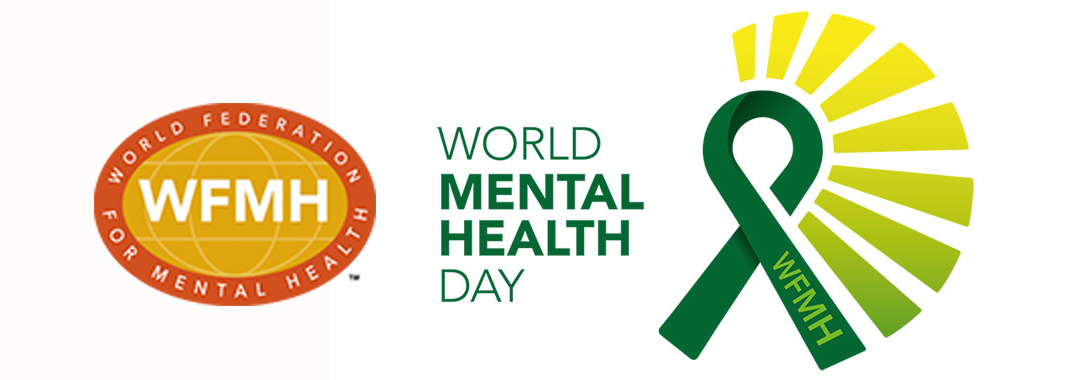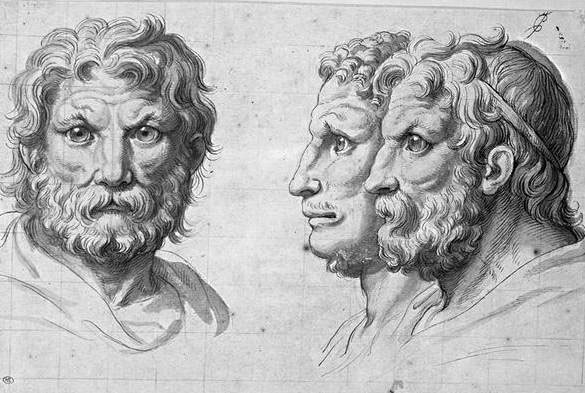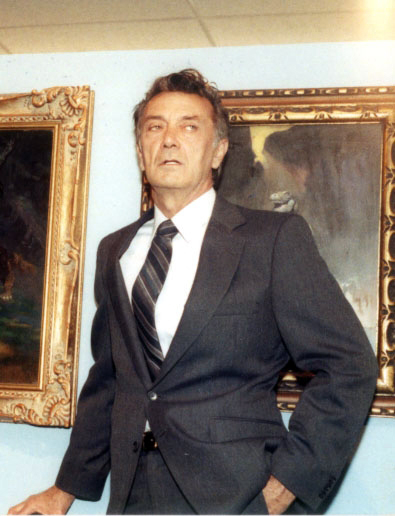Since my column this month falls on World Mental Health Day this year, I couldn’t pass up the opportunity to address it. As you know if you’ve been reading my columns, I’ve been doing a lot of research into how mental health affects an artist’s ability to create — a topic I always knew was critical to our community, but didn’t quite know how critical until we opened up the Dear Art Director website. Easily half the questions artists anonymously ask Dear AD are on mental health topics, and the desire to be able to answer those questions more helpfully is what sparked my interest in the fields of Art Therapy and the Psychology of Creativity. Recently even a little Neuroaesthetics.
I’m still at the beginning of my education in this direction, but I want to share some of the most useful tips and books I’ve found so far, that apply the most directly to Artists & Mental Health. Some of them are going to seem a little simple, but I promise you they are all powerful.
1 — Don’t be afraid that addressing mental health issues is going to make you less creative
This is a huge fear for a lot of artists, because we’ve been fed the mythology of the “crazy” artist and artist who drives themself mad in the pursuit of their art. This is an archetype that became popular in the Romantic movement in the 1800s, ran right through Van Gogh, and is perpetuated up to today with the “27” Club. I talked about it in a column a few months ago. What you need to know is yes, there are reasons why mental health issues can travel with creativity, but it’s a correlation, not a causation. Many artists fall under the umbrella of Highly Sensitive People (HSPs) and I encourage you to take the quick test on Dr. Aron’s website and read The Highly Sensitive Person if the characteristics sound familiar. Many artists I have pointed towards that book in the past year have come back to me and said it was the first time they didn’t feel like something was wrong with them — and that itself can be the lifting of a huge burden. Make sure you get the revised version because it adds a lot of hard neuroscience and genetics research that has come out in the past decade. Maybe you struggle with a different mental health issue, and maybe you are fortunate and don’t have to deal with any currently — you still have to face this myth of the suffering artist we’ve all internalized.
Finding the right treatment for your mental health struggles will support your ability to make art, not take it away. There is no nobility in suffering more. Life as an artist is hard enough. Find the help and support you need. Many therapists and doctors have sliding scales for people who are uninsured to pay what they can, and there are many clinics and schools that offer therapy and medication evaluation for low or no cost. A little time with Google should bring up links to nonprofit organizations and providers in your area.
2 — Don’t work yourself to the bone, burnout is not a virtue
Our culture (especially in America) promotes the idea of hard work getting you anything you want. And that’s true, to a degree, but the dark side of that statement is the belief that if you haven’t gotten what you want yet, then you haven’t worked hard enough and we need to drive ourselves harder. Whether we work freelance or in-house, there are many companies and clients that expect artists to keep churning out work beyond exhaustion, with the threat that there’s another artist who would happily take your place. What can be even worse than that is the pressure we put on ourselves. Most freelancers I know feel that any time spent not working is lost money, and the folks that work staff jobs are always beating themselves up for not finding more time to work on their personal projects and portfolios. An occasional all nighter or hard push is understandable — it’s how many artists work, periods of intense work followed by relaxation and recharge — but you have to give yourself the time and permission to recharge. We build up stress in our minds and our bodies and because stress has both the physical and mental aspect we must also clear it physically and mentally.
The best book I’ve ever read on stress is Burnout by Emily Nagoski. Reading it changed my entire outlook on how I think about and deal with stress. There’s Stressors (what is causing you stress) which tends to be something you solve mentally (or just have to put up with if it’s something you can’t change) and Stress (the physical effect of dealing with those Stressors) which you hold in both your mind and body and thus needs to be dealt with by your mind and your body. Stress is a cycle, and you have to complete the cycle to release it. If you stop midway through (by repressing your feelings, powering through, and/or not giving your mind and body the release it needs thru some outlet like going for a walk, meditating, playing with your dog, or going to the gym) then it keeps building up and stress piles onto stress until you are in burnout and it starts eating away at you in a chronic way. Once you’re in burnout you’re not doing your best work. You’re just surviving and forcing yourself forward.
In much the same way as we need to recharge ourselves to clear stress, we must also recharge our creative batteries. Whether that’s free sketching, going to museums, getting inspired by other media, or having another creative outlet that isn’t something you do for work, it’s critical to refill the well or we can’t find new inspiration and improve.
3 — Sleep more to encourage your unconscious and conscious to interact
So many studies I am reading show that we are all chronically undersleeping, and it leads to higher stress levels and less creative thinking. I just read a study that showed less sleep among entrepreneurs hampered their ability to see opportunities and solve problems creatively. I know there’s not enough hours in the day to get everything we want to do done — and if you have small children you may not have control over your sleep — but try to just experiment for a week. Set an alarm and try to go to bed 1 hour earlier. After 7 days see if you feel a difference. I bet you will. I was convinced I was fine on 6 hours a nite…and I was “fine”…but I started fitting in 7 hours a nite and the change was remarkable. 8 isn’t always possible, but 30min or 1hr more makes a ton of difference.
As artists, we specialize in taking truths and emotions out of our unconscious, which is linked to the collective unconscious of our culture, and dragging it thru our conscious mind, and out through our art so that everyone can see it. And the time when your conscious and unconscious mind are exchanging information and coming up with new ideas is when you are asleep. When you are dreaming. To keep your conscious mind and imagination constantly fertilized you need to give yourself enough proper sleep to dream so your conscious and unconscious mind can process experiences and emotions together.
4 — Move more to support your meat suit
This is not where I shame anyone into going to the gym. Sure, vigorous exercise can do wonders for stress and mental flexibilty and memory but so can long walks, or playing with your kids or pets outside. I know artists and we are all guilty of sitting or standing in one place way too long when we are working. Studies are showing that the quickest way to lessen a depressive episode with the least side effects is to go get some exercise. It doesn’t even have to be outside (but it helps). And much like with sleep, you don’t have to make a big change. Just set a few alarms to get up out of the chair and stretch. Make it a habit to go for a walk every day. After a week, you’ll start to feel the benefits. Letting art flow out of us more efficiently is all about keeping things in harmony, and that includes your body and your mind. You can’t develop one and neglect the other and expect the system to work efficiently. Some of the greatest thinkers and artists and authors have sworn by their daily walks. And it is shown that semi-conscious repetitive tasks (like walking, showering, bouncing a ball, etc) free the mind to make unexpected connections, which is the definition of creativity. Personally I know that when I am boxing regularly I am less anxious, feel more confident, feel more in control and ready to tackle anything, and more creative.








I’m very impressed by your thorough research and well organized writing, Lauren. Thank you for this great information!
Doug
<3